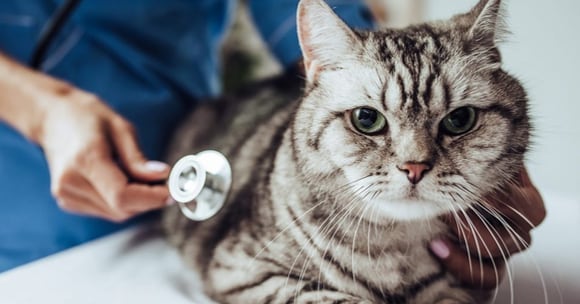
Collaborative Response Project
The Animal Legal Defense Fund Collaborative Response Project seeks to train key stakeholders together in their jurisdictions, setting them up to most effectively address animal abuse in their communities. Our one-year program will pair selected criminal justice and veterinary agencies in one jurisdiction to receive tailored training, legal support, and funds toward developing practical skills and best practices. Our goal is to enable the selected jurisdiction to achieve meaningful outcomes in their animal cruelty cases throughout and beyond the life of this one-year exercise.
Animal crimes proliferate alongside domestic violence and neglect of children, gang activity, and mental illness. A proactive and comprehensive response to animal neglect and abuse is foundational to building or rebuilding healthy communities and restoring public trust and goodwill. As in so many other areas of policing, collaborative relationships and community partnerships are filling gaps and offering solutions that result in appropriate outcomes for communities and enforcement agencies.

For over 40 years, the Animal Legal Defense Fund has been providing support to prosecutors and working to advance animal protection laws. In today’s law enforcement landscape — with budget cuts, staffing shortfalls, and redistribution of service priorities — animal cruelty investigations may be deprioritized. Animal cases can be complex and time and resource intensive, placing additional strain on agencies. In response, the Animal Legal Defense Fund is launching the Collaborative Response Project which will support a multidisciplinary response to animal crime through a partnership between local law enforcement agencies and a community veterinarian.
A veterinarian plays two primary roles in animal cruelty cases:
- identifying evidence of cruelty which contributes to a strong case that can support prosecution
- providing education and access to services for individuals for whom criminal charges are not appropriate
The Collaborative Response Project team will receive:
- Tools for building a network of local experts to respond to reports of animal cruelty, with a focus on veterinary support
- One year of funding for veterinary services in animal cases
- Hands on training for veterinarians, law enforcement, and prosecutors
- Expert individual case consultations
- A strong, lasting foundation of processes and materials to continue successful investigation moving forward
If you would like to learn more about how your community can be considered for this groundbreaking program, please fill out this brief application and our project coordinators will contact you with additional information.
Frequently Asked Questions:
How do I know if the project is right for the needs in my community?
Because the project is dedicated to serving one jurisdiction, the elements of the program will be customized to the needs of your community. If your jurisdiction could benefit from a collaborative effort in responding to animal cases, additional funding for those efforts, and training and supplies to perform your duties, this project will benefit you.
What is the application process like?
Interested prosecutors, veterinarians, or enforcement officers may complete our online application. The application vetting process will begin with our project coordinators contacting the heads of each entity participating in the program (enforcement agency, veterinary clinic, and prosecutor’s office) to gauge interest and availability.
Who is eligible to apply?
A representative from any entity is eligible to apply, but we strongly recommend you gauge the interest of your agency prior to completing the application. If the applicant is a representative of an animal welfare organization or enforcement agency and has no appropriate connection with a veterinarian within their jurisdiction, the ALDF project coordinators will work to locate a veterinarian in your area who is interested in participating. The application vetting process will include contacting the heads of each entity participating in the program (enforcement agency, veterinary clinic, and prosecutor’s office). Eligibility is contingent on interest and participation by all entities.
How long does the project run?
The project runs for one year and includes in person training for all entities followed by operations funding for veterinary forensics, access to cost of care grants for sheltering entities and real time case consultation and support throughout the project timeline.
What is the time commitment for participants?
While the time commitment will largely be dictated by the number and types of animal cruelty cases present themselves during the course of the project, participants should expect to spend two full workdays in training at the project’s onset as well as regularly scheduled progress meetings in the following months.
How is the veterinary funding distributed?
The veterinary funding will be distributed through multiple grants over the course of the project.
What additional benefits does the project offer?
Participating agencies will receive dedicated training and individual case consultation in addition to process training and materials such as forms and templates throughout the year which you are encouraged to continue utilizing after the project end date. Our project leads will work with your agencies to build ways to sustain the collaborative relationships and operational processes into the future as well. Participating animal care agencies will be eligible for expedited cost of care grants related to protective custody sheltering of evidence animals.
I have additional questions about the project or a specific case I’m working on.
Contact us by emailing Lfielder@aldf.org! We are available to answer any questions, assist you through the application process, and discuss particular issues you are encountering in your jurisdiction. We are also available to consult on criminal investigations, veterinary forensics cases, search warrant and seizure operations, and prosecution matters at any time by contacting action1@aldf.org.

Sign Up!
Join the Animal Legal Defense Fund's email list to stay up to date on lawsuits, legislation, and regulations affecting animals.
Focus Area
How We Work
Related
-
Resolution Opposing Elective Cat Declaw Surgeries Introduced in the U.S. House of Representatives
Declawing is a cruel surgical procedure to remove the last bone in a cat's toesDecember 16, 2025 Press Release -
City of Sturgeon Agrees to Pay $500,000 in Settlement Over Police Shooting of Blind, Deaf Dog
The lawsuit argued the lethal force used violated the 4th amendmentNovember 14, 2025 Press Release -
California Governor Signs Animal Protection Bills into Law
The Animal Legal Defense Fund sponsored two bills protecting cats and wild animalsOctober 21, 2025 News




